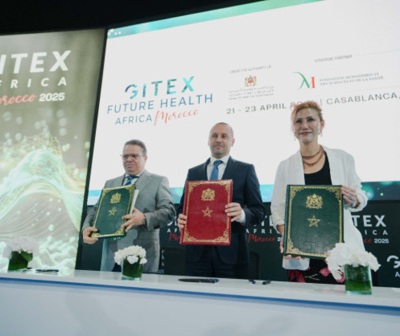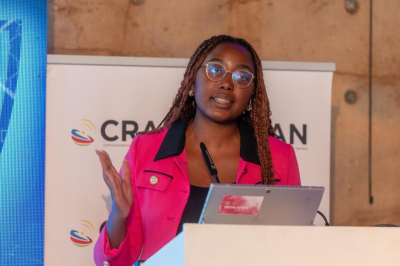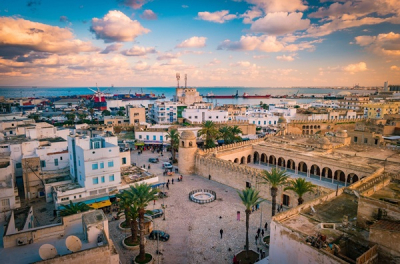During the coronavirus pandemic, several socio-economic activities were halted in Africa. It forced governments to accelerate digital transformation to ensure continuity of public services. Although it was mostly forced on them, the digital transformation seems now to be a key to solving several problems for African countries. For the Malagasy government, the virtual university planned will facilitate access to University courses for thousands of young people.
Madagascar will soon transform its National Center for Distance Education (CNTEMAD) into a virtual university. In that regard, last Thursday, a tripartite framework agreement was signed by Prof Slim Khalbous (photo, center), rector of the AUF, Elia Béatrice Assoumacou (photo, left), Madagascar’s Minister of Higher Education, and her peer of the Ministry of Posts and Telecommunications Tahina Michel Razafindramalo (photo, right).
The virtual university will be established by creating a virtual network of the CNTEMAD regional centers/agencies, dematerializing administrative tasks, and rolling out an e-learning platform to allow access to the regional centers’ digital resources.
Under the framework agreement mentioned above, the Francophone University Agency (AUF) will support the project in five key areas. First, it will carry out studies to determine the best options for the projects. Secondly, it will mobilize international experts for the implementation of the project. Then, it will ensure the application of best practices in the management of digital spaces and the development of online courses. It will also train the teaching, technical and administrative staff involved in the project. The last key area is helping the government find international partners and backers for the virtual university project.
The support provided by the AUF aligns with one of the key focuses of the latters’ 2021-2025 strategy, namely “digital transformation and university governance.”
The virtual university is in line with Madagascar’s digital transformation strategy aimed at leveraging information technology for socio-economic development. Indeed, with the virtual university, the government wants to facilitate access to university courses for thousands of young people who lack the necessary financial resources to settle in Antananarivo to pursue university studies. Thanks to the virtual university, they can take university courses anywhere they are in the country. All they need is a connected laptop or smartphone.
Ruben Tchounyabe



















